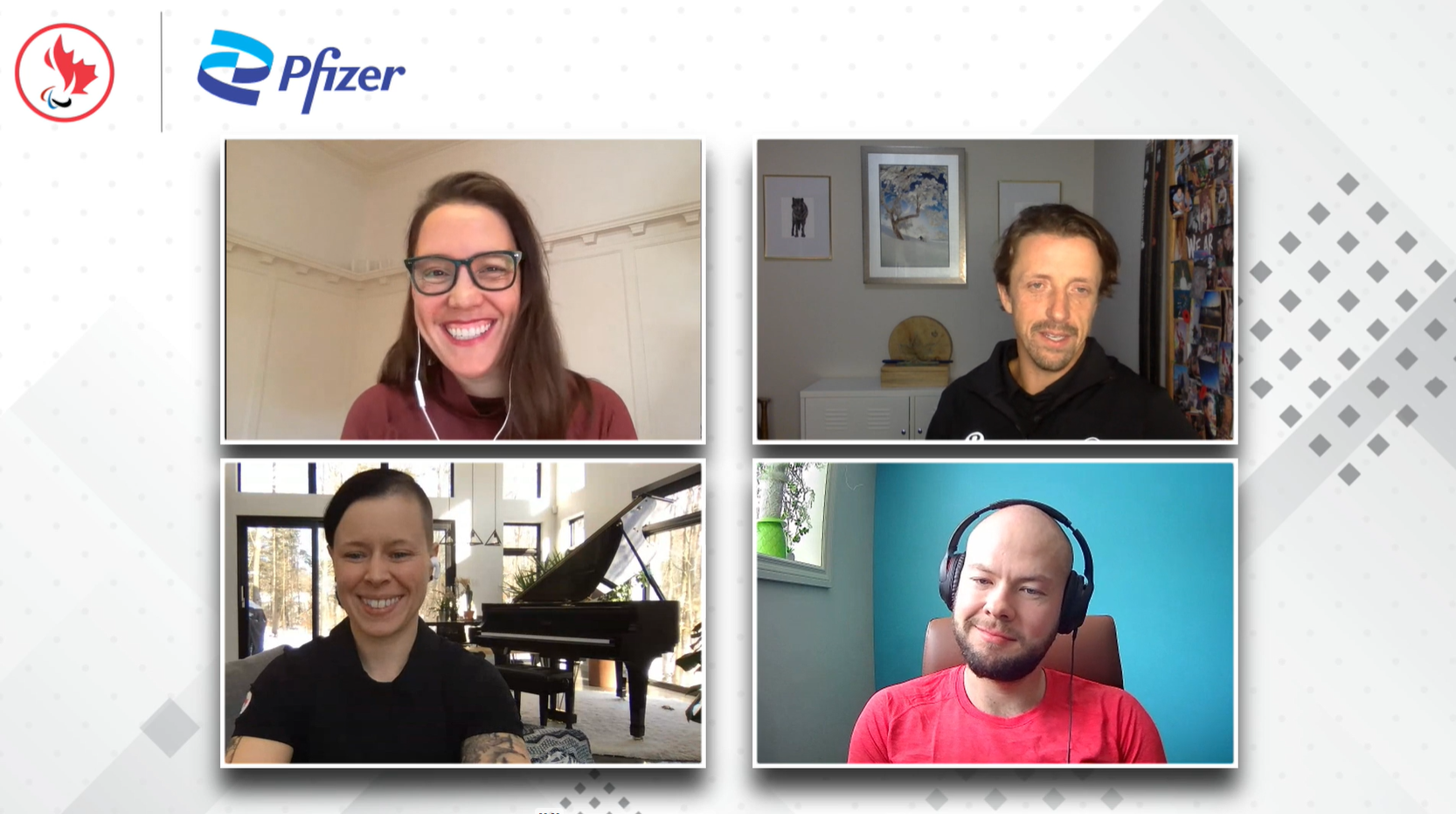Paralympians emphasize listening, empathy, and creativity in supporting people with disabilities
Athletes spoke at CPC webinar, supported by Pfizer Canada, for #IDPD2022

For five-time Paralympian Cindy Ouellet, International Day of Persons with Disabilities is about education and awareness.
“For me, it’s about trying to educate people about the different disabilities, the different realities that people with disabilities live with. I have an acquired disability, and I didn’t grow up knowing something about disabilities, I didn’t see it on the TV, I didn’t hear it anywhere.
“When I first got my cancer [that resulted in her disability], I didn’t know sport existed for me. It has changed in recent years, there’s more media, there’s more that’s happening online, but there is still a lot more work to do in that aspect.”
Ouellet was speaking Monday at the Canadian Paralympic Committee’s virtual event Transformative Solutions for Inclusive Development in commemoration of International Day of Persons with Disabilities, which took place December 3. Held in partnership with longtime partner Pfizer Canada, the event was hosted by Karolina Wisniewska (Para alpine skiing) and featured panelists Josh Dueck (Para alpine skiing), Zak Madell (wheelchair rugby), and Ouellet (wheelchair basketball).
All four are esteemed and accomplished Paralympians.
The entire hour-long session can be viewed below.
The quartet spoke candidly on many different topics, including but not limited to innovation in sport, specifically related to advancements in equipment and prostheses; invisible barriers that still exist such as transportation and finances; diversity, equity, and inclusion in sport; and advice they would share to people looking to get into Para sport.
Opening remarks were also shared by Senator Chantal Petitclerc – one of Canada’s most successful Paralympians ever – as well as CPC CEO Karen O’Neill and Pfizer Canada’s director of global health and social impact Vincent Lamoureux.
One of the overarching themes was needing to think creatively and have an open mind when coming up with innovative solutions to remove barriers and better support people with disabilities.
“I do think there is something very essential in thinking about what it might be like to be in someone else’s chair, shoes, whatever,” said Wisniewska.
Listening was also highlighted as critical in being an ally.
“Good listening – a good friend is someone who is a good listener, who is empathetic, understanding, patient, and kind,” said Dueck. “If they really want to be an ally, I would think their number one goal is to be a part of and witness your life experience where you rise above the challenges, where you rise to meet the challenges of the day, in your sport, in your activity, or in your life.”
"*" indicates required fields
"*" indicates required fields